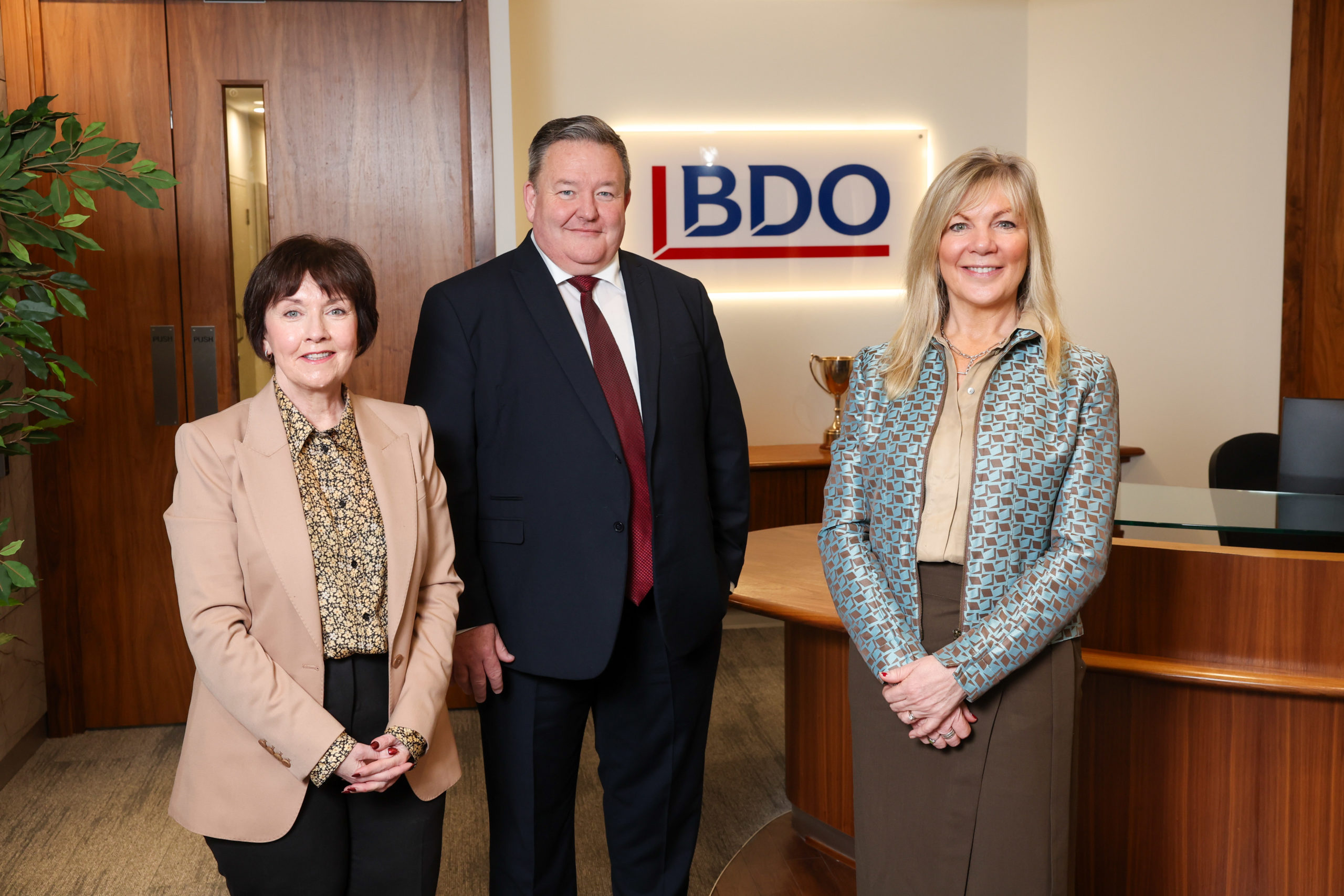Almost two thirds of NI Chamber members believe they will grow in 2024, according to the findings of our latest Quarterly Economic Survey Report which was published last week. Despite the many significant challenges which persist, that sense of resilient optimism is one the many things which could, and should, set us apart as a place to do business, but we need to shout louder about our competitive advantages.
As 2023 drew to a close, our members told us that increased competition is a growing concern. In fact, more than twice as many manufacturers were concerned about competition in Q4 23 compared to a year ago. For generations, manufacturing has underpinned our economic outputs, accounting for 11% of employment and over 15% of GVA. As the uncertainty around the imminent return of the Executive continues, this growing concern about competition should be a wake-up call for the business community and policymakers alike.
In this context, we must start asking ourselves the same questions investors are pondering. Why choose Belfast over Birmingham, Newry over Dundalk, or indeed the Northwest over a region of the European Union, as a place to do business? Because if we cannot build and articulate an ambitious and bold proposition, opportunities will go elsewhere. And many of our talented young people will continue to look beyond the region as they progress their careers. Clear and positive answers to this question will also give our indigenous business the confidence they need to build on their growth and investment ambitions.
It’s not however an easy question to answer. We have a headline corporation tax rate which is double that in the Republic of Ireland; a challenging starting point which so often dominates the competitiveness debate. But in Northern Ireland, we have our own distinct advantages and potential unique selling points. Our challenge is selling them and crucially, delivering on the potential they present.
If Northern Ireland is to really compete in a very fast-paced, highly digitised global market, some agile and collective thinking is required. Together, we need to build a proposition which acts as a springboard for economic growth by making Northern Ireland stand out across these islands and further afield.
As a place to do business, the region is often described as neither too big nor too small, and in many respects is just right for testing new and innovative ideas. From fintech and cybersecurity to medtech and low carbon technology, Northern Ireland is already leading the way by using size to its advantage. Industry has well established ecosystems between funders, professional services, industry leaders and academia, which are ideal conditions for innovative local and international businesses.
When it comes to manufacturing, with around 50% of our electricity generation coming from renewables, we got off to a good start in presenting the world with a low carbon ‘greenshoring’ opportunity, but in absence of an Executive and policy reform at pace, that opportunity is now under threat. NI Chamber recently published a detailed report on how we can reform our planning system – a key driver of renewable generation. With a Minister in place, many of these reforms can be delivered to get us on the right track to 80% renewable generation by 2030.
And what about our post-Brexit trading arrangements? The Windsor Framework has brought a degree of stability with improved UK-EU relations and that is to be welcomed. But government must work hard with business to improve efficiency and ensure the timely delivery of guidance to allow sufficient time to prepare for the next implementation date in October this year. We got off to a good start with the first implementation phase late last year. We now need to build on that momentum to grow trade with GB, which is a critical market for NI businesses, including the one I manage every day.
And with that momentum, we now need to explore the possibilities of trading barrier free into GB and EU markets in much more detail, so they roll off the tongue. Let’s take the time to consider what it means for different sectors. For example, in the competitive space of health and life sciences, what does it mean in practice? Our members in the sector tell us they see it as a distinct advantage because unlike competitors in Ireland or Great Britain, all manufacturing and associated certification continues to be recognised in the EU and the UK, with corresponding barrier free access to both markets. It is not a silver bullet for all, but our unique market access presents clear advantages for a number of sectors and with exports to the EU26 amounting to around half the value of the those to the Republic of Ireland, there are opportunities we should be working on.
Yet, one year on from the Windsor Framework being agreed and the potential it creates, following instructions from the Secretary of State, there is now a live consultation on industrial d-rating. If the UK government is hoping to encourage firms to establish in NI by using dual market access for our exporters as a draw and encourage our current manufacturers to expand, why put this rates relief scheme at risk? This is something that NI Chamber, together with colleagues across the business community is strongly challenging.
So while there are many factors outside of our control, let’s start to meet the competitiveness challenge head on. Let’s start by building a meaningful conversation about what our proposition could look like; a Northern Ireland which stands out as a test bed for innovation, as a destination for green shoring and as a gateway to EU and GB markets for high growth sectors and the right conditions for investment and growth. It will demand collective buy-in and tough decisions but ones that contribute to the objective of better economic growth. Despite the challenges, by stepping forward together in 2024, we can create the conditions to allow Northern Ireland to thrive.


